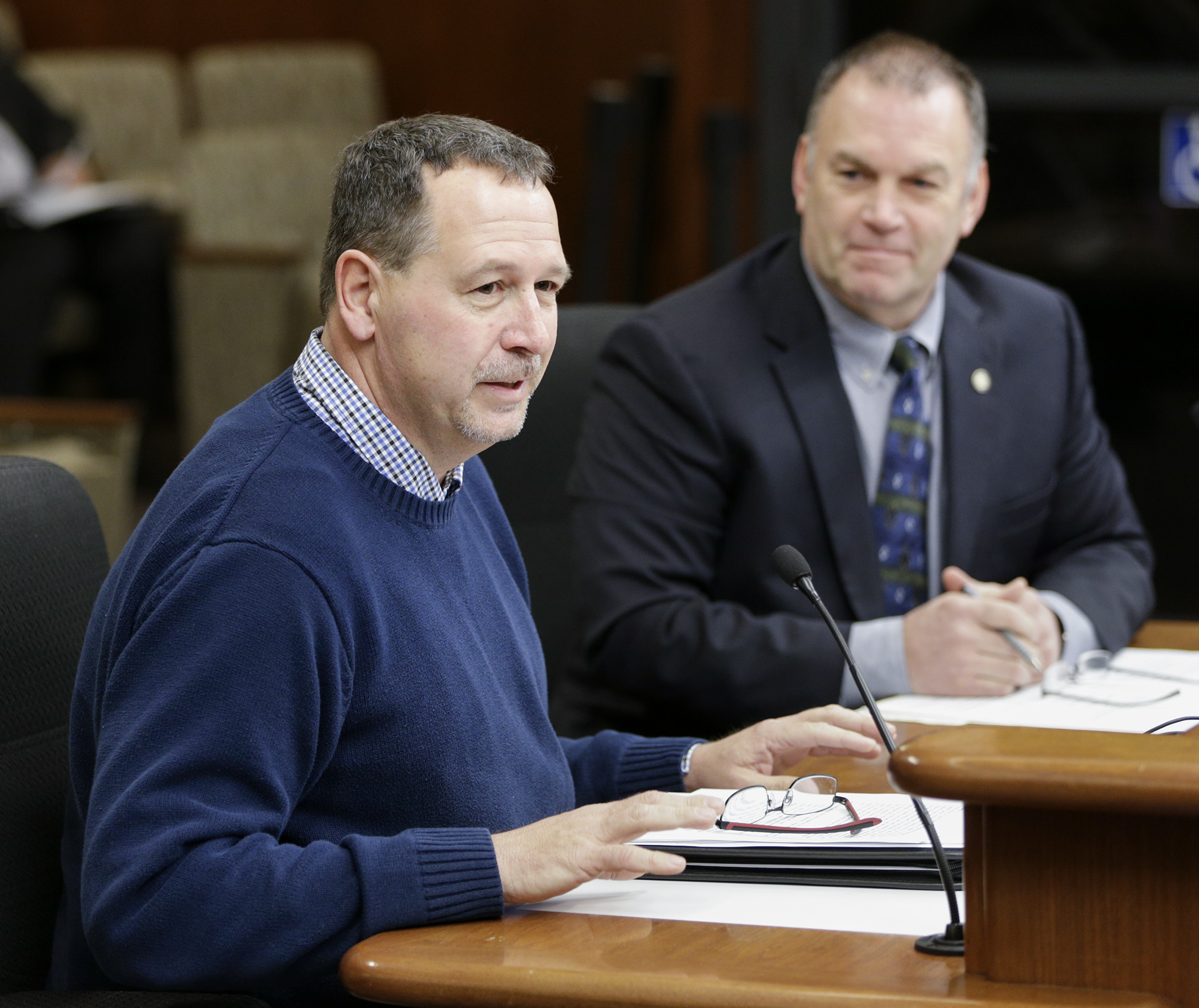Volkswagen settlement funds create clash of ideas

Federal settlement money could mean new school buses for districts in Minnesota, but some have concerns about spending too much too soon.
Under HF1254, sponsored by Rep. Dave Baker (R-Willmar), public school districts could apply to the Pollution Control Agency for funds to purchase propane-powered school buses and propane fueling stations.
The maximum bus rebate would be the lesser of 25 percent of the bus cost or $25,000. Districts could apply for up to five rebates a year. A district could also apply for one annual grant toward the cost of a propane fueling station for the lesser of either 50 percent of the project cost or $50,000.
Approved by the House Education Innovation Policy Committee Thursday, the bill now heads to the House Job Growth and Energy Affordability Policy and Finance Committee. Its companion, SF1256, sponsored by Sen. Andrew Mathews (R-Milaca), awaits action by the Senate Environment and Natural Resources Finance Committee.
In 2016, Volkswagen agreed to pay $14.9 billion over 10 years as part of a federal emission standards fraud settlement. The bulk of the money will be allocated to automobile buybacks, but $2.7 billion will be dispersed among states to local governments and private companies. Of that, Minnesota will see an estimated $47 million over three years (it must be spent by 2027). The PCA will oversee fund allocation.
“We are asking to take advantage of the court settlement,” Baker said. “We want to help school districts be able to put out better buses.”
Proponents say the buses would be an upgrade over the diesel-powered ones commonly used today. For instance, in extreme cold weather diesel fuel can gel, making startups problematic. Propane has no such hindrance.
“This is long overdue,” said John Thomas, transportation director for Eastern Carver County Schools. Since 2010, his district has increased its fleet of propane buses from 18 to 54. He says they are quieter, have less maintenance and save fuel.
“With this bill, districts across the state will have the funding opportunity to see the success we have found,” he said.
“A rebate to help buy propane buses is a fabulous idea,” said Tom Keliher, representing the Minnesota School Bus Operators Association. He admitted propane buses are more expensive compared to diesel by an average of 10 percent, but said fuel savings level the purchase price after 4-5 years of use.
Agreed on the merit of the idea itself, concerns centered on potential competition for the same settlement funds from other groups with different ideas.
“We love school buses too,” said Assistant PCA Commissioner David Thornton. However, he thinks it might be too big of a piece of the pie, too soon.
“Our concerns are locking up what could possibly be a third of the money before we have a chance to hear from all interested parties. We want to understand what the cost and benefits are. … Take a breath and get more input on the options before we lock up a significant amount.”
He said a series of public input meetings are to be conducted in the coming months, with proposals from other interested groups expected this summer.
Related Articles
Search Session Daily
Advanced Search OptionsPriority Dailies
Ways and Means Committee OKs proposed $512 million supplemental budget on party-line vote
By Mike Cook Meeting more needs or fiscal irresponsibility is one way to sum up the differences among the two parties on a supplemental spending package a year after a $72 billion state budg...
Meeting more needs or fiscal irresponsibility is one way to sum up the differences among the two parties on a supplemental spending package a year after a $72 billion state budg...
Minnesota’s projected budget surplus balloons to $3.7 billion, but fiscal pressure still looms
By Rob Hubbard Just as Minnesota has experienced a warmer winter than usual, so has the state’s budget outlook warmed over the past few months.
On Thursday, Minnesota Management and Budget...
Just as Minnesota has experienced a warmer winter than usual, so has the state’s budget outlook warmed over the past few months.
On Thursday, Minnesota Management and Budget...